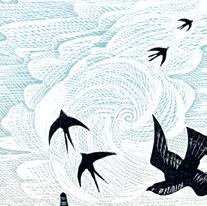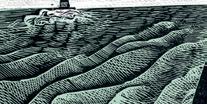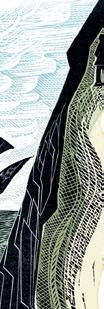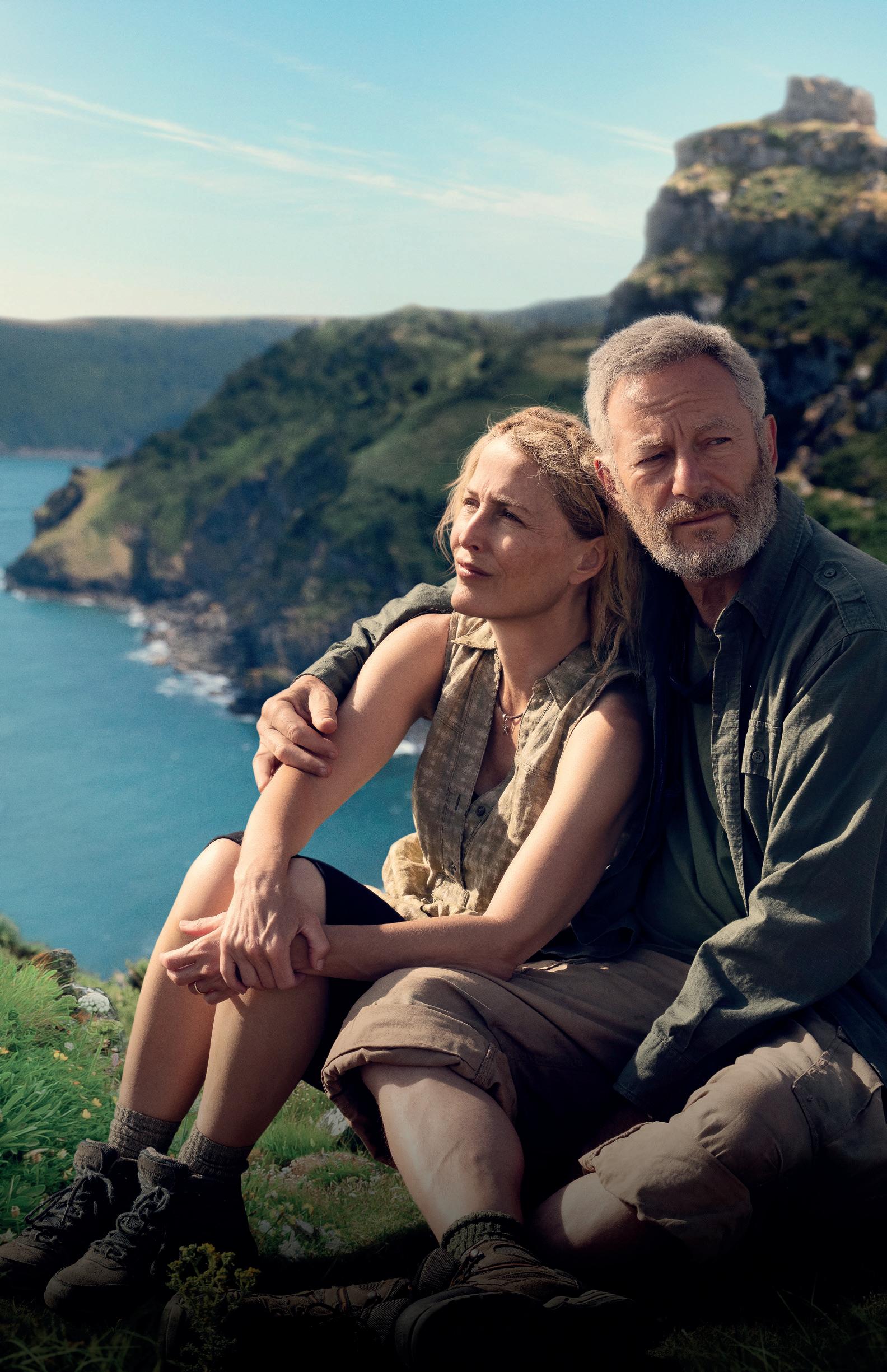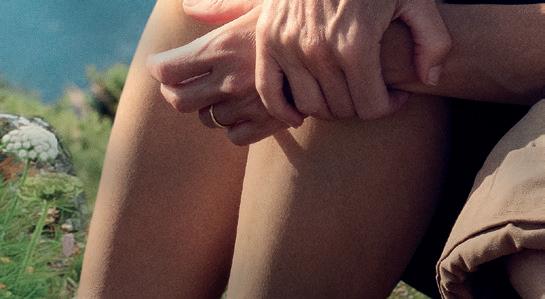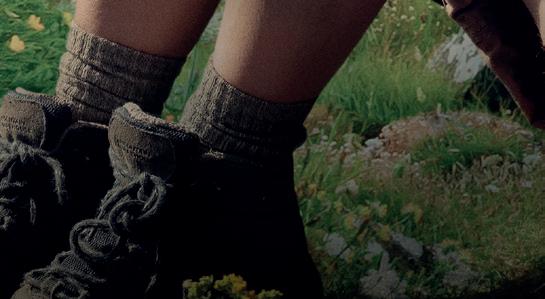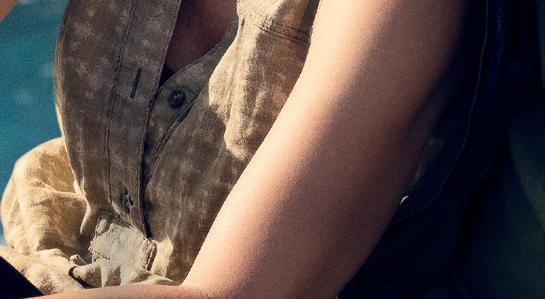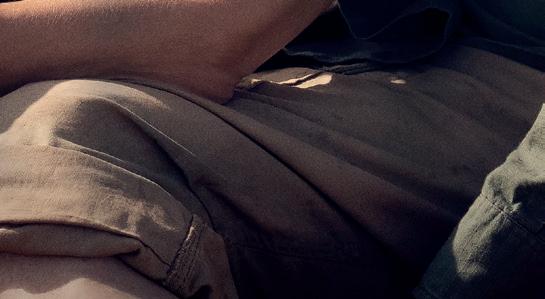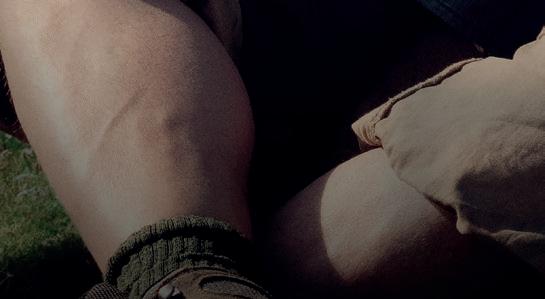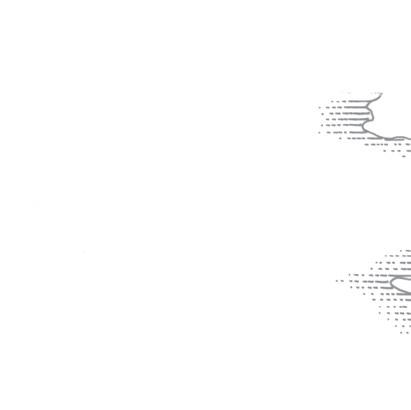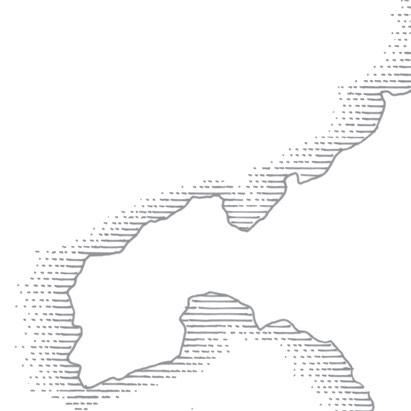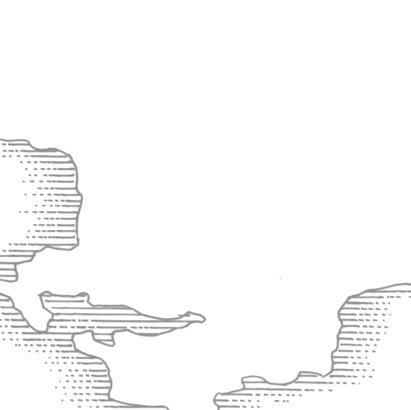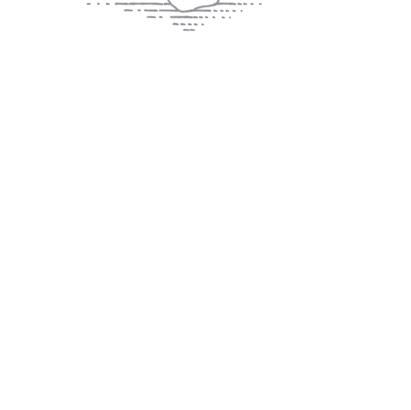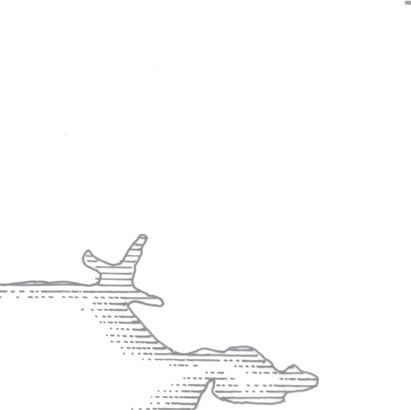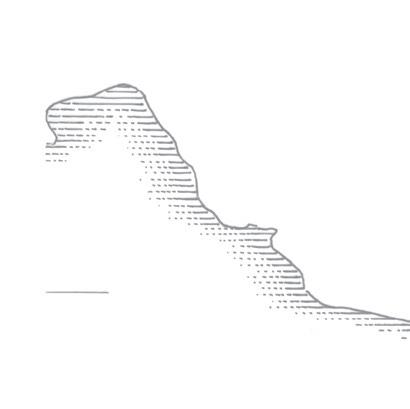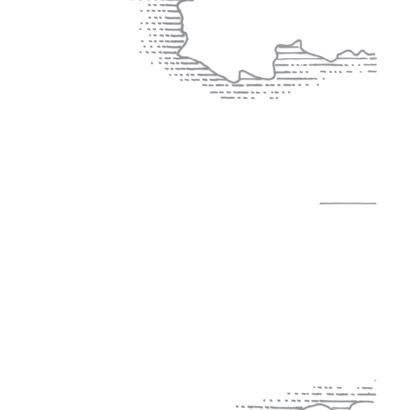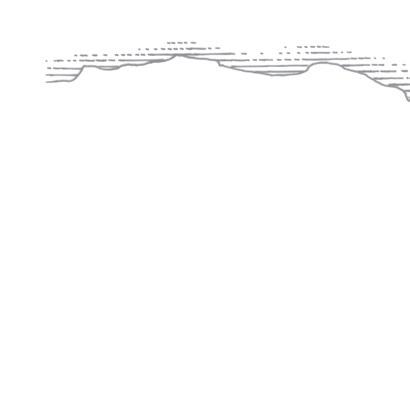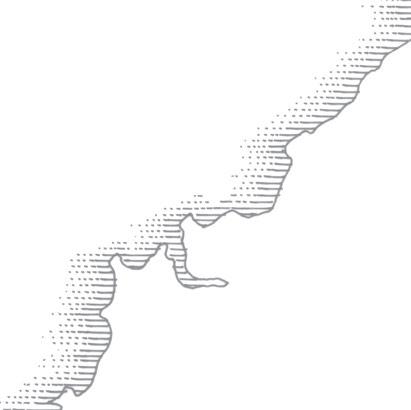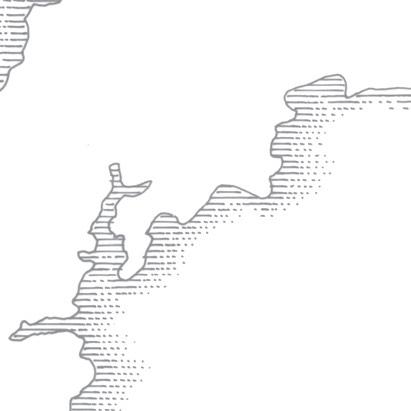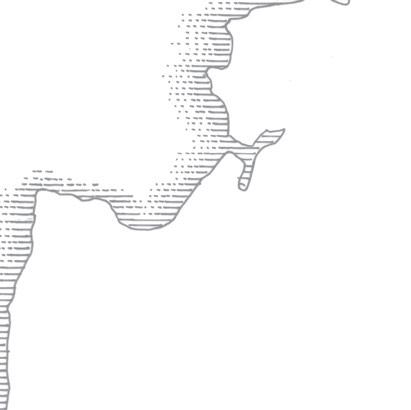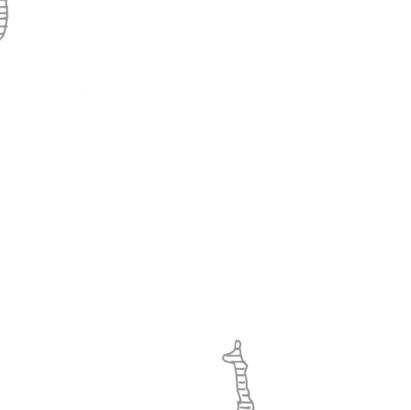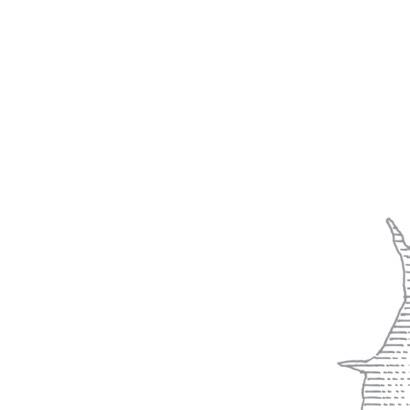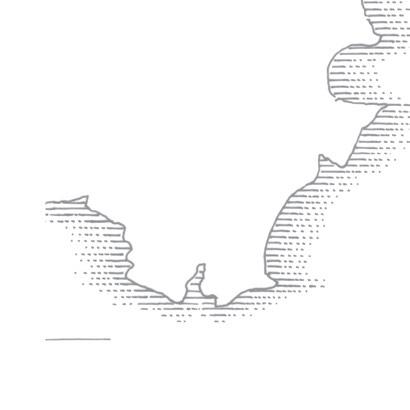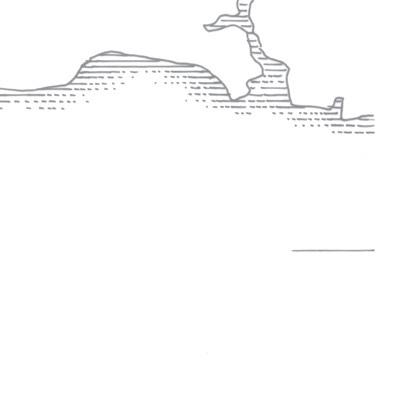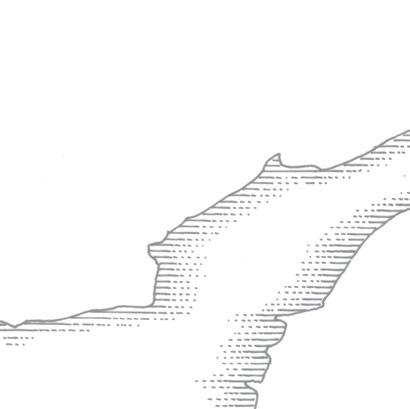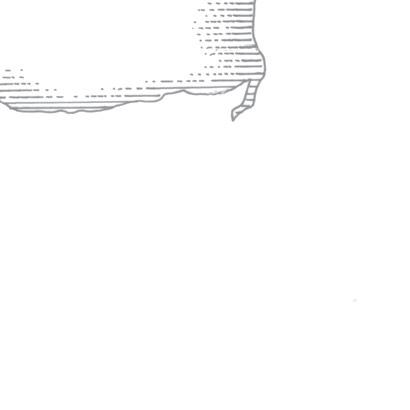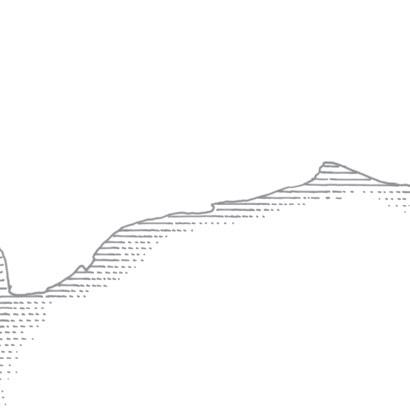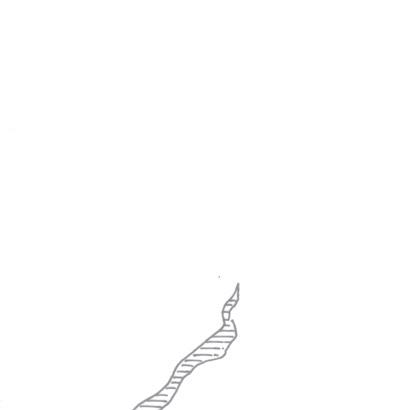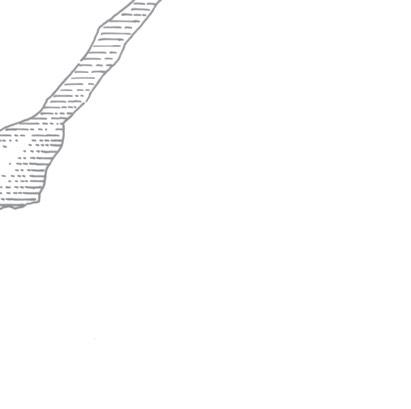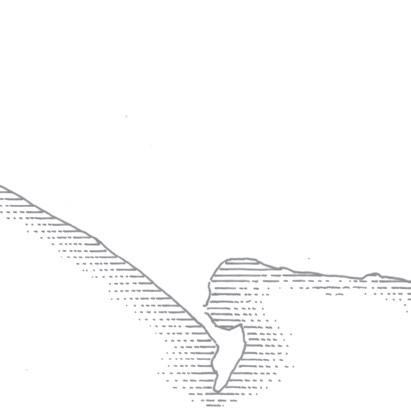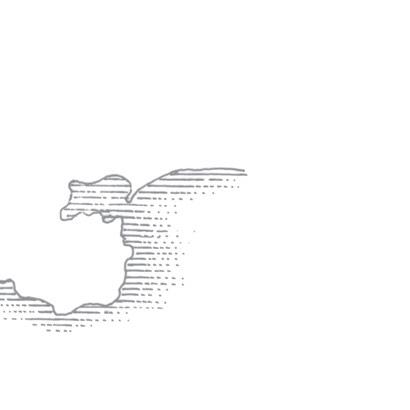part one
Into the Light
Tell me about a complicated man. Muse, tell me how he wandered and was lost . . .
Homer, The Odyssey
1. Dust of Life
I was under the stairs when I decided to walk. In that moment, I hadn’t carefully considered walking 630 miles with a rucksack on my back, I hadn’t thought about how I could a ord to do it, or that I’d be wild camping for nearly one hundred nights, or what I’d do afterwards. I hadn’t told my partner of thirty-two years that he was coming with me.
Only minutes earlier hiding under the stairs had seemed a good option. The men in black began hammering on the door at 9 a.m., but we weren’t ready. We weren’t ready to let go. I needed more time: just another hour, another week, another lifetime. There would never be enough time. So we crouched together under the stairs, pressed together, whispering like scared mice, like naughty children, waiting to be found.
The baili s moved to the back of the house, banging on the windows, trying all the catches, looking for a way in. I could hear one of them climbing on to the garden bench, pushing at the kitchen skylight, shouting. It was then that I spotted the book in a packing box. I’d read Five Hundred Mile Walkies in my twenties, the story of a man who walked the South West Coast Path with his dog. Moth was squeezed in next to me, his head on his knees, his arms wrapped around in self- defence, and pain, and fear, and anger. Above all anger. Life had picked up every piece of ammunition possible and hurled it at him full force, in what had been three years of endless battle. He was exhausted with anger. I put my hand on his hair. I’d stroked that hair when it was long and blond, full of sea salt, heather and youth; brown and shorter, full of building plaster and the
kids’ play dough; and now silver, thinner, full of the dust of our life.
I’d met this man when I was eighteen; I was now fi fty. We’d rebuilt this ruined farm together, restoring every wall, every stone, growing vegetables and hens and two children, creating a barn for visitors to share our lives and pay the bills. And now, when we walked out of that door, it would all be behind us, everything behind us, over, fi nished, done.
‘We could just walk.’
It was a ridiculous thing to say, but I said it anyway.
‘Walk?’
‘Yeah, just walk.’
Could Moth walk it? It was just a coastal path after all; it couldn’t be that hard and we could walk slowly, put one foot in front of the other and just follow the map. I desperately needed a map, something to show me the way. So why not? It couldn’t be that di cult.
The possibility of walking the whole coastline from Minehead in Somerset, through north Devon, Cornwall and south Devon to Poole in Dorset seemed just about feasible. Yet, in that moment, the idea of walking over hills, beaches, rivers and moorland was as remote and unlikely to happen as us getting out from under the stairs and opening the door. Something that could be done by someone else, not us.
But we’d already rebuilt a ruin, taught ourselves plumbing, brought up two children, defended ourselves against judges and highly paid barristers, so why not?
Because we lost. Lost the case, lost the house, and lost ourselves.
I reached out my hand to lift the book from its box, and looked at the cover: Five Hundred Mile Walkies. It seemed such an idyllic prospect. I didn’t realize then that the South West Coast Path was relentless, that it would mean climbing the equivalent
of Mount Everest nearly four times, walking 630 miles on a path often no more than a foot wide, sleeping wild, living wild, working our way through every painful action that had brought us here, to this moment, hiding. I just knew we should walk. And now we had no choice. I’d reached out my hand towards the box and now they knew we were in the house, they’d seen me, there was no way back, we had to go. As we crawled from the darkness beneath the stairs, Moth turned back.
‘Together?’
‘Always.’
We stood at the front door, the baili s on the other side waiting to change the locks, to bar us from our old lives. We were about to leave the dimly lit, centuries- old house that had held us cocooned for twenty years. When we walked through the door we could never ever come back.
We held hands and walked into the light.
2. Losing
Did we begin our walk that day under the stairs, or the day we got out of a friend’s van in Taunton, to be left in the rain on the side of the road with our rucksacks on the tarmac? Or had the walk been coming for years, waiting on our horizon to be unleashed on us only when there was absolutely nothing left to lose?
That day in the court building was the end of a three-year battle, but things never end the way you expect them to. When we moved to the farm in Wales the sun was shining, the children were running around our feet and life was spreading out ahead of us. A derelict pile of stones in an isolated spot at the foot of the mountains. We put every ounce of ourselves into its restoration, working on it through every spare moment while the children grew around us. It was our home, our business, our sanctuary, so I didn’t expect it to end in a dingy grey courtroom next to an amusement arcade. I didn’t expect it to end while I stood in front of a judge and told him he’d got it wrong. I didn’t expect to be wearing the leather jacket the kids had bought me for my fi ftieth birthday. I didn’t expect it to end.
Sitting in the courtroom, I watched as Moth picked at a white fleck on the black table in front of him. I knew what he was thinking: how had it come to this? He’d been close friends with the man who was making the fi nancial claim against us. They’d grown up together, part of a group of friends; riding their trikes, playing football, sharing teenage years. How had it come to this? They’d stayed close even when others had fallen away. As they grew into adults and their lives took them in di erent
directions, Cooper moved into fi nancial circles that few of us understood. But Moth kept in touch regardless, remaining friends. Trusting enough that when an opportunity arose to make an investment in one of his companies we took it, putting in a substantial sum. The company with which the investment was made eventually failed, leaving a number of unpaid debts. The suggestion that we owed money had crept in insidiously. At fi rst we ignored it, but over time Cooper became insistent that, owing to the structure of the agreement, we were liable to make payment towards those debts. Initially, Moth was more devastated by the breakdown in a friendship than by the fi nancial claim, and the dispute rumbled between them for years. We were convinced that we had no liability for the debts as it was not specifically indicated in the wording, and Moth fi rmly believed that they would eventually work it out between themselves. Until the day when a court summons for payment arrived in the post.
Our savings quickly ran out, eaten up by solicitors’ fees. From then on we became litigants in person, just a number amongst the unrepresented masses, something the government had created in their thousands when they announced the recent legal aid reforms, leaving us with no right to free representation as our case was classed as ‘too complex’ to qualify for legal aid. The reform may have saved £350 million a year, but left vulnerable people with no access to justice.
The only tactic we were able to employ was to stall, and stall and stall again, playing for time, while all the time in the background contacting lawyers and accountants, trying to fi nd some written evidence that would convince the judge of the truth: that our interpretation of the original agreement was correct, and we had no liability for the debts. Without a barrister on our side we were constantly outmanoeuvred and a charge was registered against the farm as security for payment of Cooper’s claim.
We held our breath, and then it came: a claim for possession of our home, of the house and the land, of every stone we had carefully placed, the tree where the children played, the hole in the wall where the blue tits nested, the loose piece of lead by the chimney where the bats lived. A claim to take it all. We continued to stall, making applications, requesting adjournments, until we fi nally thought we had it, the shining white light of a piece of paper that proved that Cooper had no right to make the claim, as we didn’t owe anything. After three years and ten court appearances, we had the evidence that could save our home. We’d sent copies to the judge and the claimant’s barrister. We were ready. I wore my leather jacket, I was so kick-ass confident.
The judge shu ed his papers as if we weren’t there. I glanced at Moth, needing some fl icker of reassurance, but he stared straight ahead. The last few years had taken their toll; his thick hair was thinning and white and his skin had taken on a waxy, ashen appearance. It was as if a hole had been cut through him; a trusting, honest, generous man, this betrayal by such a close friend had shaken him to the core. A constant pain in his shoulder and arm ate at his strength and distracted his thoughts. We just needed this to be over, to get on with normal life, and then I felt sure he’d get better. But our life would never be that kind of normal again.
I stood up, my legs loose, as if they were underwater. I held the piece of paper like an anchor in my hand. I could hear seagulls squabbling outside with agitated distracting calls.
‘Good morning, sir. I hope you received the new evidence which was supplied to you on Monday.’
‘I have.’
‘If I can refer you to that evidence—’ Cooper’s barrister rose to his feet, straightening his tie as he always did when he was about to address the judge. Confident.
In control. Everything that we weren’t. I was desperate for a lawyer, begging for one.
‘Sir, this information which you and I have both received is new evidence.’
The judge looked at me accusingly.
‘Is this new evidence?’
‘Well, yes, we only received it four days ago.’
‘New evidence cannot be pro ered at this late stage. I cannot accept it.’
‘But it proves everything we’ve said for the last three years. It proves that we don’t owe the claimant anything. It’s the truth.’
I knew what was coming. I wanted to freeze time, stop it there, never let the next words come. I wanted to take Moth’s hand, to get up and leave the courtroom, never to think of it again, to go home and light the fi re, to run my hands across the stone walls as the cat curled into the warmth. To breathe again without my chest tightening, to think of home without fear of losing it.
‘You can’t produce evidence without the correct judicial procedure. No, I’m going to proceed to judgement. I will give possession to the claimant. You will have vacated the property in seven days’ time, by nine a.m. on that day. Right, we’ll move on to costs. Is there anything you wish to say about costs?’
‘Yes, you’ve made a complete mistake, this is all wrong. And no, I don’t want to talk about costs, we’ve got no money anyway, you’re taking our home, our business, our income, what more do you want?’ I gripped the table as the floor fell away. Don’t cry, don’t cry, don’t cry.
‘I’m taking that into consideration and dismissing the claim for costs.’
My thoughts were drifting, running for safety. As Moth moved in his chair I could almost touch the smell of hot dry
gravel and fresh- cut boxwood as it whispered from his jacket. The kids had grazed their knees on that gravel learning to ride their bikes, and skidded on it as they drove out on their way to university. The roses were in full flower, hanging over the box hedge like cotton-wool balls; I’d be dead-heading soon.
‘I request the right to appeal.’
‘No, I’m denying the right to appeal. This case has gone on for far too long; you’ve had plenty of opportunities to supply evidence.’
The room was shrinking, the walls closing in. It didn’t matter that we had only just found this evidence, or that it contained the truth; it only mattered that I hadn’t submitted it in the correct way, that I hadn’t followed the correct procedure. What would I do, what would we do, what would I do with the hens, who would give the old sheep a slice of bread in the morning, how could we pack a farm in a week, how could we pay for a hire van, what about the families who had booked holidays, the cats, the kids? How could I tell the children we’d just lost their home? Our home. Lost, because I didn’t understand the procedure. I’d made a simple, basic error: I hadn’t made a request to submit further evidence. I didn’t know I needed to. I’d been so happy, so sure, I just sent it in. Wasted my perfect piece of paper, with the perfect white truth. And now we had lost it all. Penniless, homeless.
We closed the courtroom door behind us and walked down the corridor, sti , silent. I glanced at the barrister in the side room and kept walking, but Moth went in. No, Moth, no, Moth, don’t hit him. I could feel all the anger, all the stress of the last three years. But he held out his hand to the barrister.
‘It’s all right, I know you’re only doing your job, but it was the wrong decision, you do know that, don’t you?’
He took Moth’s hand and shook it.
‘It’s the judge’s decision, not mine.’
I still didn’t cry, but a silent internal howl took hold and screwed me tight, making it hard to breathe.
I stood in the field behind the house, under the twisted ash tree, where the children built an igloo in the big snow of ’ninety-six. I broke a slice of white bread into six pieces, a ritual that had marked the start of the day for the last nineteen years. The old ewe snu ed at my hand and her soft lips took the bread: nineteen years old, no teeth, but still a great appetite. The children called her Smotyn, Welsh for spotty. Now she was a grumpy old ewe, with a scru y black and white fleece and two wonky horns. Well, one now, she’d knocked the other o in her desperation to get into a feed bucket a few years before. Tom had kept the horn; it was in the treasure box he took with him when he left for university, along with his fossils and Pokémon cards. When Rowan was three I’d taken her on a forty-mile road trip in our tiny van. We bought three scatty, spotty little lambs from a farm on the side of a hill overlooking the sea. She howled with annoyance when I wouldn’t let her sit with them, so I relented and drove home with all four of them together on the straw in the back of the van. They’d been part of our lives ever since, part of our family. They’d had many lambs over the years, but now Smotyn was the only one left, her sisters had died and I’d sold all the rest to another breeder the year before, when the court case had reached a point where we thought it couldn’t go any further and we were about to lose. I hadn’t been able to let Smotyn go: at her age no one else would keep her; the average lifespan for a sheep is six to seven years before they’re sent to make dog food or meatballs. The day after the court hearing I’d taken the hens to a friend, but there was no room for Smotyn. She wandered away down the field, clouds of dandelion seeds engulfi ng her, to below the beech trees where the grass was always dry. We both knew that field as if it
was an extension of ourselves. How would either of us live without it?
We’d both be homeless in five days; then we’d know.
What I didn’t know, what I couldn’t know, was that it wouldn’t take five days for my life to change forever, for everything that kept me stable to turn to quicksand beneath me. It would happen the next day.
We were in a consultant’s room in a hospital in Liverpool. Finally, we would have the results of years of medical procrastination and we’d know the cause of Moth’s shoulder pain. After a life of physical work he’d been told by one doctor: ‘Pain is normal, you should expect to su er when you raise your arms and stumble a bit when you walk.’ Others had raised questions about a slight tremor in his hand and numbness in his face. But this doctor was the top dog, head of his field, the real deal. He was going to tell us that it was ligament damage or something similar and how it could be fi xed; that it had happened when Moth fell through the barn roof years ago – maybe there’d been a hairline fracture. He was certainly going to tell us how it could be put right. He would sit authoritatively behind his desk and tell us this. Without a doubt.
We’d barely spoken during the long drive to Liverpool, each of us in our own mire of shock and exhaustion. The days since the court case were a blur of packing boxes and bonfi res, endless fraught phone calls and despair. The realization had dawned that we had nowhere to go. The worst thing that could possibly happen had happened. This seven-hour round trip was something we didn’t need. Every hour was precious, every hour to fi nish packing, every hour to still be held safe within those walls.
The endless trips to doctors’ waiting rooms had begun six years previously. A debilitating pain in his shoulder and arm,
and then a tremor beginning in his hand, had led to doctors believing he had Parkinson’s disease, but when that was proved not to be the case, they felt maybe it was nerve damage. This consultant’s room was like every other: a square, white, emotionless box overlooking the car park. But this doctor wasn’t behind his desk; he came and sat on the corner of it next to Moth, put his hand on his arm and asked him how he was. It was wrong. Doctors don’t do that. No doctor we’d seen, and we’d seen a fair few, had ever done that.
‘The best thing I can do for you, Moth, is give you a diagnosis.’
No, no, no, no, no. Don’t say any more, don’t speak, something awful is going to fall out of your smug, tight lips, don’t open them, don’t speak.
‘I believe you have corticobasal degeneration, CBD. We can’t be absolutely certain about the diagnosis. There is no test, so we’ll only know at post-mortem.’
‘Post-mortem? When do you think that will be?’ Moth’s hands spread wide over his thighs, holding as much of himself as he could between his broad fi ngers.
‘Well, I would normally say six to eight years from onset. But yours seems to be very slow progressing as it’s already been six years since you fi rst presented with a problem.’
‘That must mean you’ve got it wrong then. It’s something else.’ I could feel my stomach rising into my throat and the room slipping out of focus.
The doctor looked at me as if I was a child; then he carried on trying to explain a rare degenerative brain disease that would take the beautiful man I’d loved since I was a teenager and destroy his body and then his mind as he fell into confusion and dementia, and end with him unable to swallow and probably choking to death on his own saliva. And there was nothing, absolutely nothing they could do about it. I could hardly breathe; the room was swimming. No, not Moth, don’t take him, you can’t take
him, he’s everything, he’s all of it, all of me. No. I tried to keep a calm face, but inside I was screaming, panicking, like a bee against a glass pane. The real world was there, but suddenly out of reach.
‘But you could have got it wrong.’
What was he talking about? This wasn’t how we would die. It wasn’t Moth’s life; it was our life. We were one, fused, enmeshed, molecular. Not his life, not my life: our life. We had a plan for how we would die. When we were ninety-five, on top of a mountain having watched the sun come up, we would simply go to sleep. Not choking to death in a hospital bed. Not separate, separated, alone.
‘You’ve got it wrong.’
We clung together in the van in the hospital car park, as if the simple act of pressing our bodies together would make this stop. If there was no light between us, then nothing could separate us, this wouldn’t be real and we wouldn’t have to face it. Silent tears rolled down Moth’s face, but I didn’t cry, couldn’t cry. If I did, I’d give in to a river of pain that would wash me away. Our whole adult life had been lived together. Every dream, or plan, every success or failure, had been two halves of one whole life. Never separate, never alone, one.
There were no drugs to halt the progress, no therapies to keep the disease at bay. The only help that could be o ered was a drug called Pregabalin to ease the pain, but Moth was already taking that. There was nothing else. I longed to be able to go to the chemist and collect a box of magic, anything that would stop the march of destruction burning through our life.
‘Physiotherapy will help with the sti ness,’ the doctor had said. But Moth already had a physio routine that he did every day. Maybe he could do more; maybe if he did more we could stop it progressing. I clutched at every straw, any fl imsy thread
